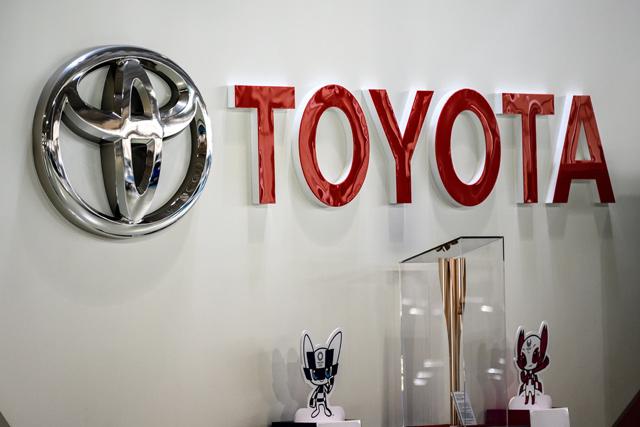- Mix
- Thu-2021-02-11 | 04:21 pm

Nayrouz News Agency :
Toyota said on Wednesday that its net profit soared 50 per cent in the third quarter and upgraded its full-year forecasts as the global auto industry gradually recovers from the coronavirus pandemic.
The world's top carmaker said it made 838.7 billion yen ($8 billion) in the three months to December, compared with 559.3 billion yen a year earlier, and revised up full-year forecasts for the second straight quarter.
Net profit was at 1.90 trillion yen for the fiscal year to March, compared with its earlier estimate of 1.42 trillion yen.
Sales are now seen at 26.5 trillion yen, compared with the 26 trillion yen previously forecast.
Last year, the firm overtook Volkswagen as the world's top carmaker for the first time in five years.
Analysts said it was bouncing back quicker than competitors from the effects of the global economic crisis caused by the pandemic.
"In a tough business environment, Toyota is outperforming its rivals," Satoru Takada, auto analyst Tokyo-based research and consulting firm TIW, told AFP before the announcement.
The pandemic has taken a heavy toll on the global auto sector but demand recovered swiftly in the second half of last year, most notably in the US and China.
"Japan's auto industry showed a steady performance as major markets are recovering from the negative impact of the new coronavirus globally," Takada said.
"But we should not be too optimistic as the current shortage of semiconductors is forcing carmakers to cut back production."
On Tuesday, Toyota's smaller rival Nissan upgraded its full-year profit forecast, beating market expectations to return an operating profit for the first time in four quarters.
Honda also revised upward its full-year outlook as net profit more than doubled in the third quarter.
But Nissan and Honda downgraded their sales forecasts for the current fiscal year, citing in part the chip shortage.
Reclaiming top spot
Toyota said the shortage was not causing output reductions, and sales for the third quarter increased in Japan, North America and Europe.
It upgraded its global sales forecast to 9.73 million units for the fiscal year.
Operating Officer Kenta Kon said the firm was aware it could eventually face shortages that would force output reductions "so we are closely communicating with suppliers and manufacturers”.
"The chip shortage has hit wide-ranging industries around the world and is expected to last at least until the end of March," Yasuo Imanaka, chief analyst at Rakuten Securities, said.
"But the impact on Toyota appears limited, compared to those on its rivals and other companies," Imanaka added.
Bloomberg Intelligence auto analyst Tatsuo Yoshida said Toyota production is "not volatile" compared to some rivals.
"Toyota always give very precise indications of its orders far in advance," he noted.
Toyota shares, which have surged more than 35 per cent since mid-March last year, gained 1.70 per cent to close at 8,130 yen as investors largely welcomed the results.
Toyota reclaimed the title of world top-selling automaker last year, selling 9.53 million vehicles around the world, overtaking the 9.3 million sold by German rival Volkswagen (VW).
The Japanese giant took the lead despite a decline in global sales of more than 10 per cent as the auto industry suffered the effects of the coronavirus pandemic.
Toyota said it had benefited from a jump in sales in China, which were up over 10 per cent year-on-year, and a better-than-expected performance globally in the October-December quarter.
The last time Toyota held the top spot was in 2015, with VW edging it out in the following years.
Analysts say the firm has successfully pursued a strategy of quality over quantity in North America and China.
It has also benefited from improved ties with China's government, which is interested in Toyota's green tech, as well as brand-building in China by Japanese automakers more generally, expert say.










